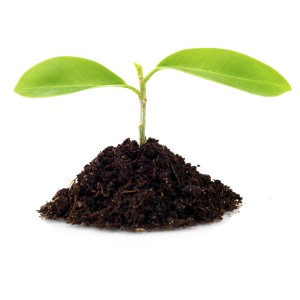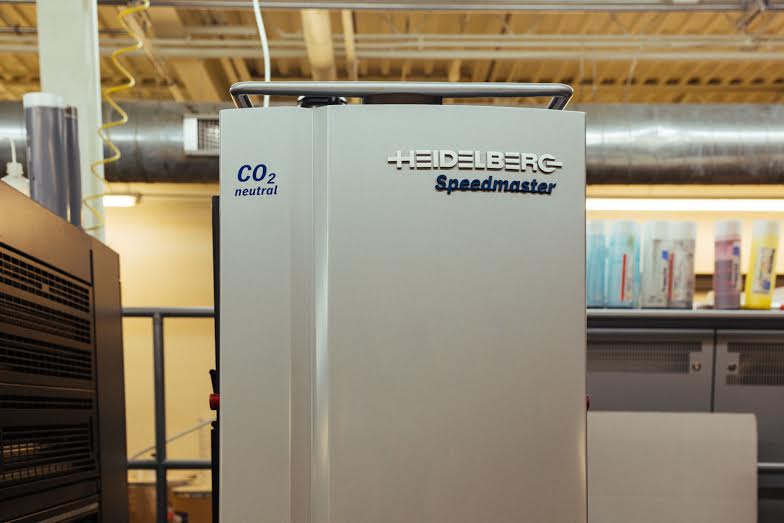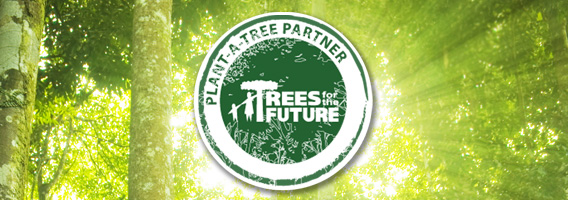
Glossary of Green Printing Terminology
All over the world, people are striving to be better to the environment. We’re driving less, creating less waste and cutting down on our energy usage.
As printers, we’re very aware of our potential impact on the environment. That’s why we pride ourselves on being good environmental stewards by practicing the most eco-friendly printing practices available to us, from our print stocks to our production floor.

With the help of Trees for the Future, we plant one tree with every order placed with us. Find out more about them down below.
This glossary defines all of those green buzzwords that get thrown around when people talk about “going green”. At Jakprints, these are more than buzzwords, they’re the way we run our business. We hope this helps you better understand green printing and, if you have any more questions about green printing or what we do here at Jakprints, give us a call!
Terms
Biodegradable – This refers to a substance or object that can be decomposed by bacteria or other living organisms.
Carbon Neutral – Making no net release of carbon dioxide to the atmosphere, meaning a zero carbon footprint. This is done either by having no carbon emissions or by offsetting your carbon emissions with carbon credits.
 Our Heidelberg Speedmaster Printer is completely Carbon Neutral
Our Heidelberg Speedmaster Printer is completely Carbon Neutral
Chain of custody – The path that goods (raw materials, processed materials and products) take from the forest to the consumer, including all stages of processing, transformation, manufacturing and distribution.
Responsibly Forested – This refers to paper that comes from well-managed forests located in North America or Europe and is certified by one of the three major organizations who follow the trees, pulp and paper through the entire chain of custody.
Post-Consumer Waste – This refers to products that are made with recycled waste but not always traditionally recycled materials.
Waterless Printing – Waterless printing is an offset lithographic printing process that uses no water unlike conventional printing. It uses silicone rubber coated printing plates and specially formulated inks. Typically a temperature-control system is integrated into waterless presses.
V.O.C – Volatile organic compounds organic chemicals that have a high vapor pressure at ordinary room temperature. They have harmful effects on humans, animals and the environment after prolonged exposure.
Inks & Paper Stocks
BIOflex – BIOflex is a custom material that when in landfill conditions (darkness, high heat, moisture and oxygen deprived) attracts microbes that break down the PVC within 3 to 5 years. BIOflex contains no toxic materials and is tear, fade and fungus resistant.
Carbon Credits – Sometimes referred to as Carbon Credit, is a financial incentive awarded to businesses for every tonne of Carbon Dioxide removed or reduced during the production of their products. They can be earned by planting trees, using renewable energy and energy efficiency projects.
Petroleum Inks – Petroleum-based inks are more expensive than soy-based inks and release a large amount of VOCs including toluene, benzene and xylene. These compounds can be very harmful to the environment, wildlife and people.
Vegetable Based Inks – Vegetable oil based inks are derived from renewable resources, most commonly soy. They are also easier to recycle than petroleum based inks. As opposed to traditional petroleum-based ink, soy-based ink is more environmentally friendly, it provides bright, vibrant colors.
Water Based Ink – These inks soak into the fabric instead of sitting on top like traditional inks. The provide a soft to the touch feel and a vintage, faded look. These are some of the most environmentally friendly inks available.

Water based ink gives this tee a vintage feel
Environmental Advocacy Groups
FSC – This stands for Forest Stewardship Council. An FSC certification ensures that products come from responsibly managed forests that provide environmental, social and economic benefits.
PEFC – Program for the Endorsement of Forest Certification is the world’s largest and only entirely not-for-profit global forest certification system.
SFI – Sustainable Forest Initiative Inc. is an independent, nonprofit organization that is solely responsible for maintaining, overseeing and improving the internationally recognized Sustainable Forestry Initiative® program.
Trees for the Future – Trees for the Future is a non-profit organization based in Maryland that helps rural communities in Africa, Asia and Latin America replenish forests destroyed by floods, droughts and unsustainable farming practices. These efforts not only improve the environment but the quality of life for hundreds of communities.

